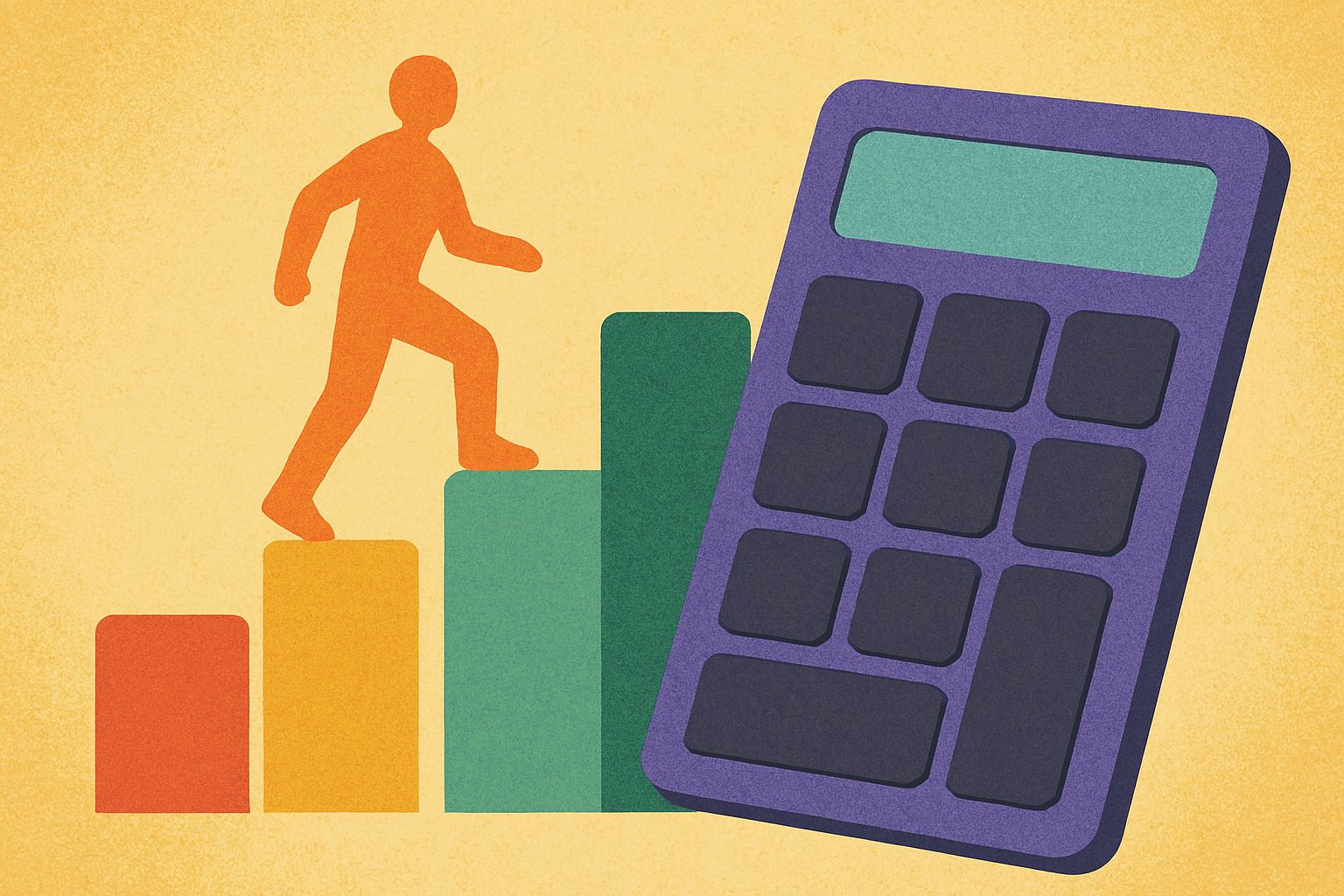Unlocking Your Potential: Understanding the Calorie Needs Calculator
When it comes to health, fitness, and overall well-being, one of the fundamental components of any nutrition plan is calories. They’re often talked about, but what exactly are they, and how can you use them to reach your fitness goals? Whether you’re trying to lose weight, build muscle, or maintain your current body composition, understanding your calorie needs is essential. A calorie needs calculator is one of the best tools available to help you navigate your dietary journey.
In this article, we will explore what a calorie needs calculator is, how it’s calculated, and how to use it to achieve your health and fitness goals. By the end of this article, you’ll have a clear understanding of how to incorporate calorie calculations into your daily life and take charge of your nutrition. Let’s dive in!
Calorie Needs Calculator
What is a Calorie Needs Calculator?
A calorie needs calculator is a tool designed to help you determine how many calories you need to consume each day to meet specific goals. These goals could include weight loss, muscle gain, or simply maintaining your current weight. The calculator uses factors like your age, gender, weight, height, activity level, and sometimes your body composition to estimate your Total Daily Energy Expenditure (TDEE).
Your TDEE is the total number of calories your body needs to function throughout the day, taking into account everything from breathing and digesting food to physical activity. Understanding your TDEE is essential because it provides the baseline for how many calories you should consume to maintain, lose, or gain weight.
Think of your calorie needs calculator as a personalized roadmap to your health goals. If you’re trying to lose weight, you’ll need to consume fewer calories than your TDEE (caloric deficit). If you want to build muscle, you’ll need to eat more than your TDEE (caloric surplus). The beauty of the calorie needs calculator is that it takes all the guesswork out of the equation, providing you with specific, tailored guidance on how to manage your diet.
Why is Knowing Your Calorie Needs Important?
In today’s world, it’s easy to get lost in the endless flood of nutrition advice available. We hear terms like “low-calorie,” “calorie counting,” or “high-calorie diets” all the time, but understanding the role calories play in our bodies is paramount to success. Here’s why it’s important to know your calorie needs:
Personalized Guidance: By knowing your calorie needs, you can tailor your diet based on your specific goals, whether it’s to lose weight, gain muscle, or simply maintain your current weight.
Control and Consistency: A calorie needs calculator helps you monitor and control your daily calorie intake with precision. It keeps you on track, ensuring you don’t overeat or under-eat. Consistency is key to any long-term success in achieving your goals.
Efficiency in Reaching Goals: Having a clear understanding of your calorie requirements allows you to more efficiently make adjustments as needed. Whether you need to tweak your intake for fat loss or ramp it up for muscle gain, a calorie needs calculator helps you set realistic targets.
Sustainable Lifestyle: When you know how many calories you should be consuming, you can make more informed decisions about the foods you eat, ensuring a balanced and sustainable diet. This leads to better long-term results, rather than quick-fix, short-term diets that ultimately don’t work.
Supports Physical Performance: Understanding your calorie needs can also improve your athletic performance. When you fuel your body with the right amount of calories, you enhance your energy levels, stamina, and recovery times, contributing to better workouts and performance.
How is a Calorie Needs Calculator Calculated?
A calorie needs calculator is based on the Total Daily Energy Expenditure (TDEE), which is determined by considering several factors such as basal metabolic rate (BMR), activity level, and goal. The process is relatively simple, but it’s important to understand how each component contributes to your total calorie requirement.
Step 1: Basal Metabolic Rate (BMR)
Your BMR represents the number of calories your body requires at rest to maintain basic bodily functions, such as breathing, circulating blood, and regulating body temperature. BMR accounts for the largest portion of your daily calorie expenditure. Various equations are used to estimate BMR, such as the Mifflin-St Jeor equation, which factors in your age, weight, height, and gender.
While the BMR equation provides an estimate, it gives you a solid starting point for understanding how many calories your body needs at rest.
Step 2: Activity Level
Once you have your BMR, you need to factor in your level of physical activity, since your body burns additional calories through exercise, movement, and other daily activities. Activity level is typically categorized into the following ranges:
Sedentary: Little to no exercise, mostly desk or sitting-based activities.
Lightly Active: Light exercise or physical activity like walking or household chores.
Moderately Active: Regular exercise such as jogging or cycling, combined with day-to-day activity.
Very Active: Intense physical activity or exercise several days a week, such as weightlifting or high-intensity interval training (HIIT).
Extra Active: Intense daily exercise, professional athletes, or physically demanding jobs.
By multiplying your BMR by a factor corresponding to your activity level, you get your Total Daily Energy Expenditure (TDEE). This is the total number of calories your body requires to maintain your current weight and activity level.
Step 3: Goal Adjustment
Once your TDEE is calculated, you can adjust your calorie intake based on your goals. If you’re aiming for weight loss, you’ll need to create a caloric deficit, meaning you eat fewer calories than your TDEE. Typically, a deficit of 500 calories per day can lead to about one pound of fat loss per week.
If your goal is to build muscle, you’ll need to consume a caloric surplus, meaning you eat more calories than your TDEE to provide your body with extra energy for muscle growth and recovery. Typically, a surplus of 250–500 calories per day can help you gain lean muscle mass without adding excessive fat.
If you’re trying to maintain your current weight, you simply stick to your TDEE without any adjustments.
Practical Application: Using a Calorie Needs Calculator
Once you understand how your calorie needs are calculated, it’s time to put this knowledge into practice. The beauty of a calorie needs calculator is that it provides you with a tailored calorie target based on your unique characteristics. Here’s how you can apply the information:
Track Your Progress: Use a food diary or a calorie tracking app to monitor your daily intake. Compare it to your calorie goal and make adjustments as needed. For example, if you’re not seeing the results you want, you can adjust your calorie intake accordingly.
Balance Your Macros: Once you have your calorie target, break it down into macronutrients: protein, carbohydrates, and fats. These are the building blocks of your diet, and getting the right balance is key.
Meal Planning: With your daily calorie goal in mind, plan your meals to make sure you’re hitting your targets. Focus on nutrient-dense foods that give you the most value for your calories.
Adjust as You Go: Your calorie needs may change over time. If you lose weight, for example, your TDEE will decrease, and you’ll need to recalculate your requirements. The same applies if you gain weight or increase your activity level.
Benefits of Using a Calorie Needs Calculator
By now, it should be clear that a calorie needs calculator is more than just a tool—it’s a game-changer when it comes to reaching your health and fitness goals. Whether you’re aiming to lose weight, gain muscle, or simply maintain a healthy lifestyle, having a clear understanding of your calorie needs allows you to make informed, intentional decisions about your diet and nutrition.
Clarity and Precision: A calorie needs calculator gives you a clear, science-backed understanding of how many calories you should be eating.
Flexibility: It allows for flexibility in your diet, helping you adjust your intake based on changing goals and circumstances.
Empowerment: Knowing your calorie needs puts you in control of your nutrition. You can make adjustments as needed, leading to more sustainable and consistent results.
Improved Performance: Properly fueling your body with the right number of calories helps you perform at your best, whether in the gym, at work, or in everyday life.
Reaching Your Goals: The Road to Success
Achieving your health and fitness goals requires dedication, consistency, and understanding. The calorie needs calculator is an indispensable tool that empowers you to take control of your diet and make smarter, more informed decisions about your nutrition. By understanding how many calories your body needs, you can set yourself up for success, whether you’re looking to lose weight, gain muscle, or simply maintain your current physique.
Start by calculating your calorie needs today, and use that knowledge to fuel your body and reach your goals with confidence. The road ahead is full of possibilities—make sure you’re on the right path!




